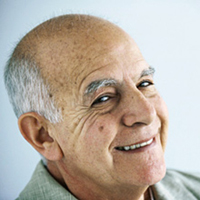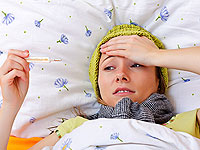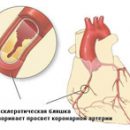What are the rules for the care of elderly patients? What are the subtleties of this care? Answers to these questions you will find in the article.
Content
Care for elderly patients
In the popular medical literature, an older age is called the gap from 60 to 75 years, and elder - more than 75 years. Each period has its own characteristic features relating to the flow of chronic diseases, complications associated with compliance with bed regime, nutrition, metabolism and T.NS. Often in the elderly and old age in patients there is a combination of several chronic diseases caused by the overall degradation of organs and tissues, as well as a natural decrease in immunity. The most common illnesses are ischemic heart disease, hypertension, vegetative dystonia. Sugar diabetes, destructive changes in the joints, kidney disease (for example, pyelonephritis, glomerulonephritis), enuresis, violations of the hematopoietic organs, bone fractures due to gradually washing out calcium. Almost always among the elderly and old people there are problems with vision - hyperopia or myopia, cataract, glaucoma, and is also observed a physiological decrease in the susceptibility of hearing organs. Among the neurological and mental violations, insomnia, nervousness, depressive states, as well as mental degradation are often noted (with damage to blood vessels of the brain).

Care for lying patients of elderly and senile age is conjugate with certain difficulties. You will need a lot more time to perform various procedures and manipulations. You must remember that with age, people become more offended, wounded, often they exaggerate the severity of their own state, preventing unreasonable complaints. Sleep disorders, often found in the elderly lying patients, lead to a violation of the routine recommended by the doctor. Your ward can sleep all day, and at night will lead an active lifestyle, read, listen to music, demand food.
Try to provide an elderly person not only physical, but also mental comfort. During communication, take into account the peculiarities of the patient's personality, as well as his mood: restlessly needed smooth, friendly sympathy, depressed - bengling, energetic intonation. Remember that the most traumatic psychogenic factor leading to the emergence of somatic complications is your indifference and formal attitude to the obligations. Inattention, true or apparent, becomes one of the reasons for increasing the irritability of your ward. Most people who are older age lose the ability to independently serve themselves, cook food, go to the store and T. NS. In addition, due to the specific age-related changes, they may be shy to remind you about the time of meals. That is why it is advisable to make a clear schedule of necessary procedures and events, placing it in a prominent place.
Often, the elderly lying patients the sense of saturation becomes small or disappears at all. This anomaly in the absence of due control on your part may lead to severe disorders of the gastrointestinal tract up to the development of acute obstruction requiring emergency operational intervention. Ask a doctor what kind of food diet and how much food your ward should receive per day, and follow the recommendations received. If the patient is constantly asking to eat, try to distract it with something (turn on the TV or radio, read the book and t.NS.). Do not forget about daily hygiene events. The patient will feel much better after washing and combing hair, shaving, wash, light massage, general wiping of the skin.
Observe care during ventilation. Elderly and old people acquire increased sensitivity to drafts and lowering the temperature in the room, since the thickness of the subcutaneous fat layer decreases with age. In the cold season before opening the window, be sure to move the patient to another room or cover 2-3 blankets. Recall that any deterioration in the health status of your ward is a reason for the immediate call. Before the arrival of a specialist, it is necessary to limit the activity of the patient, to prohibit him on its own lifting from bed, cancel the treatment of physical education, massage recommended physiotherapeutic procedures.
Special attention is paid to the prevention of beds, stagnation of blood and other complications related to the observance of a very strict and strict bed regime. More detailed recommendations on this topic are given in previous chapters. Since the skin of older people is largely losing elasticity and becomes dry, you can use nutrients with high content of fat components.
In some diseases, your ward can develop a night enuresum (the so-called Nicturia), that is, incontinence of urine during sleep. The causes of this pathology usually become dysfunctional changes in the kidneys and bladder, too deep sleep, brain disorders and T.NS. If the patient wakes up before urination, but as a result of a strong weakness, it is unable to reach the restroom yourself, set the electrical call button next to its back, so that you can come to the rescue. In other cases, it is advisable to use disposable diapers with a gel absorbent layer.









